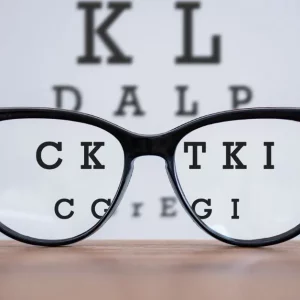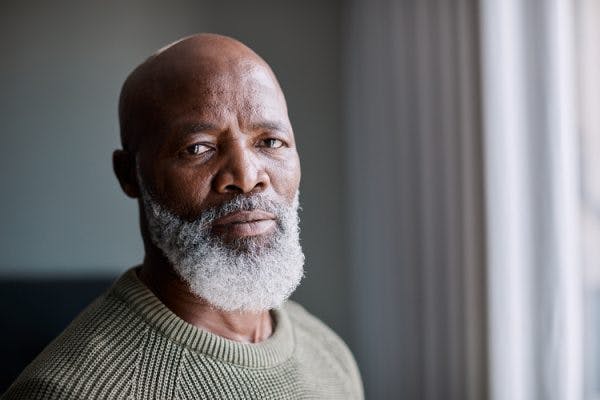There are various secondary effects survivors may experience after traumatic brain injury and intestinal dysfunction is among the most common. This can include a variety of digestive problems such as stomach ulcers, food intolerance, and gastritis, just to name a few.
Though studies are currently being conducted to find the direct cause, there are many factors that contribute to gastrointestinal issues after TBI. Every brain injury is different, and therefore the effects and/or GI problems survivors experience also vary. Gastrointestinal problems are uncomfortable and can interfere with TBI recovery.
Fortunately, there are coping mechanisms survivors can use to overcome traumatic brain injury and intestinal dysfunction and promote recovery.
Let’s explore the possible causes and management techniques TBI survivors can use to overcome these complications and return to their path of recovery.
Understanding How the Digestive System Works

To understand how a traumatic brain injury can affect the digestive system, it first helps to know how a healthy digestive system functions. The digestive system in itself is complex and adaptable. It’s made up of the gastrointestinal tract (the primary pathway food takes from mouth to excretion), liver, pancreas, and gallbladder.
The purpose of the gastrointestinal tract in particular is to break down the food you eat into nutrients your body can use. It also helps trap and dispose of any harmful substances. Thus, it’s an important part of the digestive system and overall health.
It doesn’t work alone though. The gastrointestinal tract is in constant communication with the brain to promote healthy digestion. Both hormones and nerves work together to regulate the functions of the GI tract and control the digestion process. Let’s explore how this occurs.
There are cells in your stomach lining and small intestine that release hormones. These hormones then tell your body when to make digestive juices and send signals to the brain when you are either hungry or satisfied.
The hypothalamus, in particular, is a region of the brain essential for integrating these signals, as well as other signals from the central and peripheral nervous system. It plays a major role in appetite regulation, stimulation or inhibition of food intake, and energy homeostasis.
Likewise, there are nerves that connect your central nervous system (brain and spinal cord) and your digestive system through a bidirectional pathway known as the gut-brain axis. These nerves also help control some digestive functions, such as sending signals to your brain that cause the salivary glands to ‘make your mouth water’ or prepare you to eat.
Additionally, there are nerves within the walls of your GI tract known as the enteric nervous system (ENS). These nerves release various substances that help speed up or delay the movement of food and production of digestive juices. They also send signals to the brain to control the actions of your gut muscles to either contract or relax in order to help push food through your intestines.
The gastrointestinal tract also has sensory cells that detect gut hormones, distension (the expansion of your stomach or intestines), and nutrients. This information from the gut then goes to the autonomic nervous system (ANS) and vice versa. Without this two-way communication it’s difficult to have a healthy, functioning digestive system.
Can a Head Injury Cause Digestive Problems?

After learning how a healthy digestive system works, you may wonder, can a head injury cause digestive problems? The simple answer is yes, a TBI can affect the digestive system, although mostly indirectly. While the direct cause(s) of digestive issues after TBI is still being researched, there are many contributing factors.
For instance, studies show that a TBI can cause an increase in intestinal permeability, which is how easily substances pass through the intestinal wall. Intestinal permeability can lead to high blood sugar, bacterial translocation, sepsis, and organ failure.
Survivors with a mild TBI (concussion) or moderate to severe brain injury may experience symptoms of increased intestinal permeability as early as 6 hours post TBI. However, they may also have a delayed onset of symptoms, where symptoms show weeks or months after the initial injury.
Along with an increase in permeability, there are other types of intestinal dysfunction survivors may experience including stomach ulceration, gastritis, dysmotility, and impaired gut barrier function. The effects of a TBI may further be amplified by psychological distress, which can exacerbate intestinal dysfunction symptoms.
Another important element in the gastrointestinal tract that may be affected by TBI is the immune system. The immune system monitors all the substances that pass through the gastrointestinal tract to the rest of the body. It helps target any threats or harmful substances that need to be eliminated.
Psychological stress can inhibit the immune system and further decrease the gastrointestinal tract. Therefore it’s essential to strengthen the immune system after sustaining an injury to prevent further complications.
Management Techniques & Coping Mechanisms for Intestinal Dysfunction After TBI

The brain-gut axis is an essential part of communication between the central nervous system and the gastrointestinal tract. Therefore, maintaining GI homeostasis after traumatic brain injury is essential.
Start by talking to your primary care provider or gastrointestinal specialist for proper diagnosis. There could be other health issues at play, so it’s best to be careful and consult a doctor first. They may prescribe medications to help in addition to natural remedies or they may provide a diet plan tailored to your specific needs.
Though specific treatments for every survivor vary depending on the type of TBI and their unique intestinal dysfunction symptoms, there are general care approaches you can take. This includes maintaining a proper, balanced diet and finding ways to boost your immune system.
For example, your doctor may recommend a high-fiber diet that contains foods such as lentils, broccoli, and avocados. You could also try a bland diet which consists of relatively bland foods, such as eggs, lean meat, carrots, and beans. These tend to be easy to digest and contain beneficial nutrients.
It’s also recommended to avoid excessive caffeine intake, dairy, greasy foods, spices, and anything that can aggravate your digestive system. Also, be sure to stay hydrated throughout the day. This can include drinking plenty of water and/or eating fruits that contain water such as strawberries and watermelon.
Last but not least, make sure to get plenty of rest when possible. Sleeping more than usual after a brain injury is essential to let the body and brain heal and reset (as long as it does not interfere with your night’s sleep).
While every brain injury is different and every survivor will experience different GI issues, these coping mechanisms can help alleviate some of the symptoms of intestinal dysfunction.
The Link Between Traumatic Brain Injury and Intestinal Dysfunction
The link between traumatic brain injury and intestinal dysfunction is complex. Nonetheless, it’s important to understand how the digestive system works and how crucial it is for our overall health.
Intestinal dysfunction after brain injury may result in various effects such as intestinal permeability and food intolerances. Fortunately, there are ways to improve your gastrointestinal tract and promote recovery such as medication, a high-fiber diet, and rest. Most importantly, be sure to consult with your doctor for an accurate diagnosis and treatment.
We hope this article has helped you understand the link between traumatic brain injury and intestinal dysfunction, along with ways to cope.










